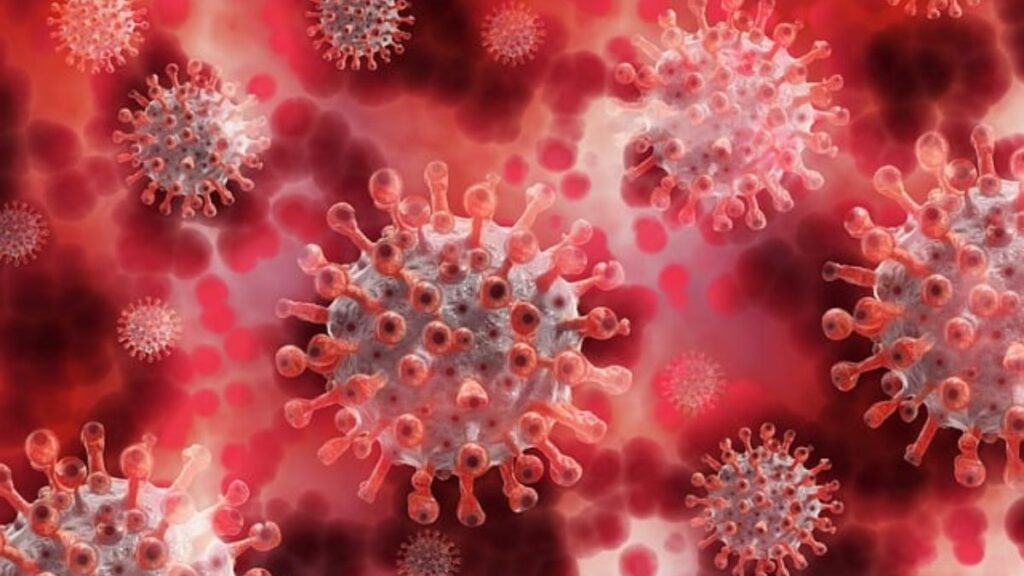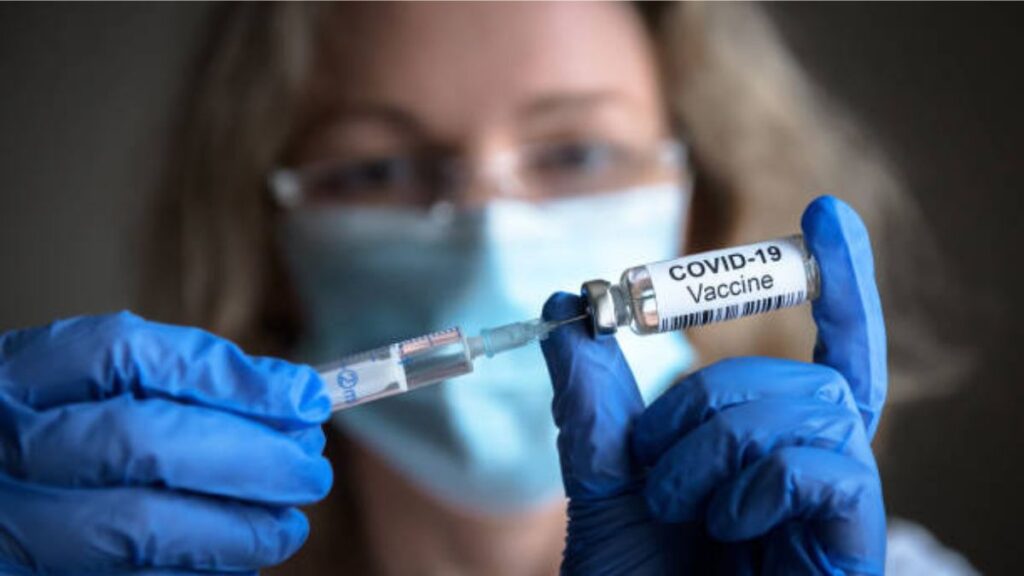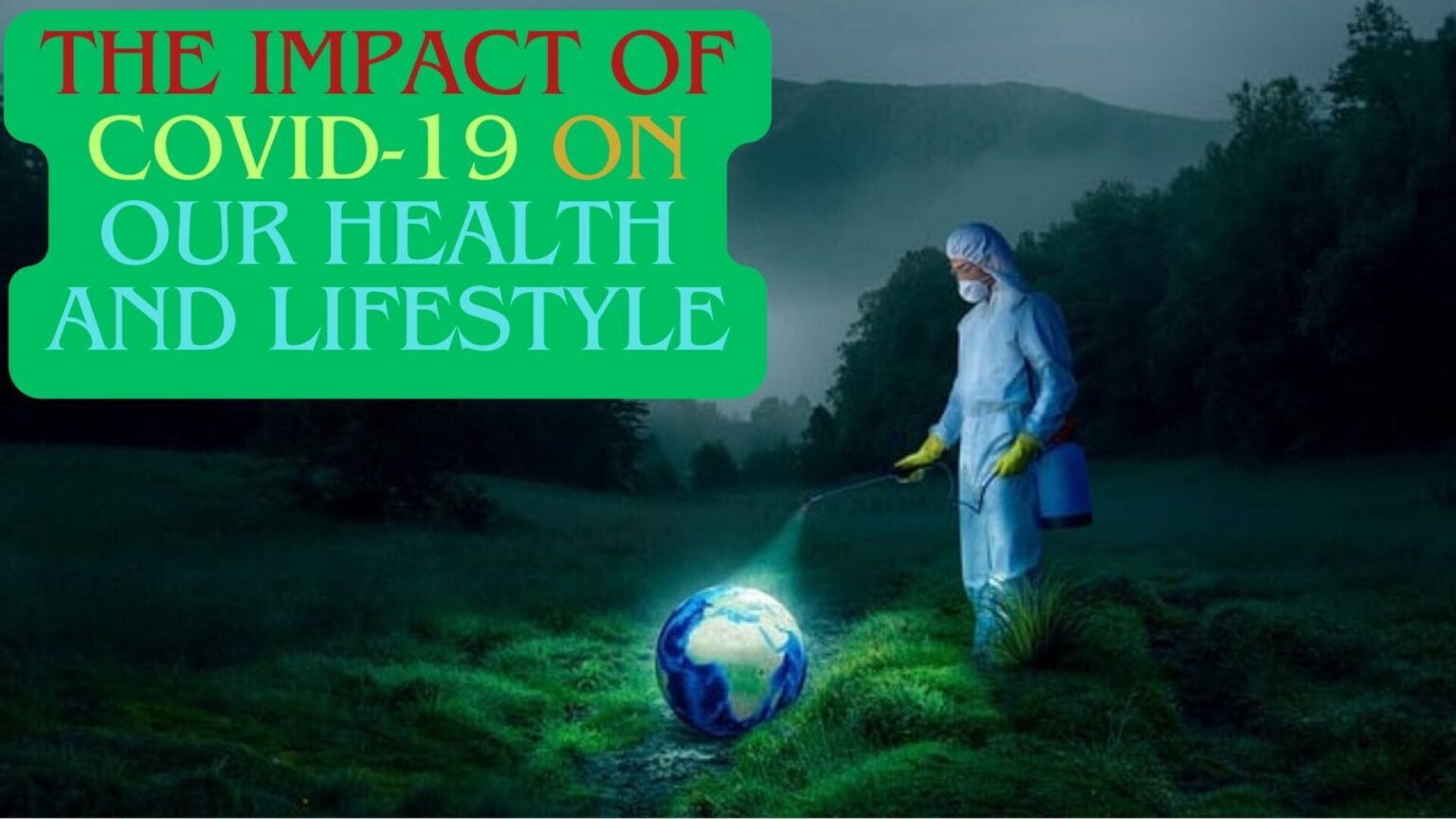Introduction :
Revolutionizing our Well being: The Impact of Covid-19 on our Health and Lifestyle

The Covid-19 pandemic has brought about a seismic shift in our lives, transforming the way we live, work, and interact. Beyond its immediate health implications, this global crisis has left an indelible mark on our overall well being. In this article, we will explore the profound impact of Covid-19 on our health and lifestyle. From physical health to mental well-being, we will examine the changes and challenges brought forth by the pandemic and shed light on how we can adapt and revolutionize our approach to wellness.
How has the COVID 19 pandemic affected our lifestyle and health?
The COVID-19 pandemic has had a profound impact on our lifestyle and health in several ways:
- Lifestyle Changes:
- Lockdowns and social distancing measures: Governments around the world implemented lockdowns and social distancing measures to control the spread of the virus. This led to significant changes in our daily routines, including limited social interactions, remote work, and online learning.
- Travel restrictions: International and domestic travel restrictions were imposed, affecting tourism, business travel, and personal mobility.
- Closure of businesses and public spaces: Many businesses, including restaurants, bars, gyms, theaters, and shopping malls, had to close temporarily or operate with restrictions, leading to financial hardships for individuals and businesses.
- Increased reliance on digital platforms: People increasingly turned to digital platforms for work, education, entertainment, and communication, leading to a surge in remote work, online shopping, video conferencing, and streaming services.
- Mental Health Effects:
- Increased stress and anxiety: The fear of contracting the virus, the uncertainty surrounding the pandemic, and the economic impact resulted in heightened stress and anxiety levels for many individuals.
- Social isolation and loneliness: Lockdowns and social distancing measures limited social interactions, leading to feelings of isolation and loneliness, particularly among those living alone or separated from loved ones.
- Psychological impact of the crisis: The pandemic has brought grief, loss, and trauma to many individuals who have experienced the illness themselves or lost family members and friends.
- Physical Health Effects:
- COVID-19 illness: The virus has caused millions of infections and resulted in various levels of illness, ranging from mild symptoms to severe respiratory distress and death.
- Long-term health consequences: Some individuals who recover from COVID-19 experience long-term health effects such as fatigue, difficulty breathing, cognitive issues, and organ damage.
- Delayed healthcare: Routine healthcare services, including preventive screenings, elective surgeries, and non-emergency treatments, were delayed or disrupted in many places, potentially affecting the overall health of individuals.
- Public Health Measures:
- Hygiene practices: There has been a heightened focus on personal hygiene practices, including regular handwashing, wearing masks, and using hand sanitizers.
- Vaccination campaigns: The development and rollout of vaccines have been critical in mitigating the impact of the pandemic. Vaccination efforts aim to reduce the severity of illness and prevent the spread of the virus.
- Socioeconomic Impact:
- Job losses and economic challenges: Many businesses faced closures and layoffs, leading to job losses and financial strain for individuals and families.
- Educational disruptions: School closures and remote learning have disrupted education systems, affecting students’ learning outcomes and exacerbating educational inequalities.
It’s important to note that the impact of the pandemic can vary depending on factors such as geographic location, government responses, healthcare systems, and individual circumstances. Efforts to control the virus and support individuals’ well-being continue to evolve as the situation develops.
What we learned from the negative health and lifestyle impact of Covid 19
The negative health and lifestyle impact of COVID-19 has provided us with several important lessons and insights. Here are some key takeaways:

- Importance of public health measures: The pandemic has highlighted the critical role of public health measures in controlling the spread of infectious diseases. Practices such as wearing masks, practicing good hand hygiene, maintaining physical distancing, and following quarantine and isolation protocols have proven effective in reducing transmission rates.
- Need for pandemic preparedness: The global response to COVID-19 has underscored the importance of robust pandemic preparedness plans. This includes early detection and surveillance systems, adequate healthcare infrastructure, stockpiling of essential medical supplies, and effective coordination between governments, healthcare systems, and international organizations.
- Value of scientific research and collaboration: The rapid development of vaccines and treatments for COVID-19 demonstrated the significance of scientific research and collaboration. The collaborative efforts of scientists, researchers, and pharmaceutical companies resulted in the development and deployment of multiple vaccines in record time. This highlights the importance of investing in scientific research and fostering international cooperation in addressing global health crises.
- Importance of mental health support: The pandemic has brought attention to the importance of mental health support. The isolation, uncertainty, and stress associated with the pandemic have had a significant impact on mental well-being. It is crucial to prioritize mental health services and provide accessible support systems for individuals and communities affected by the pandemic.
- Health inequities and vulnerable populations: COVID-19 has exposed and exacerbated existing health inequities. Vulnerable populations, including the elderly, individuals with underlying health conditions, essential workers, and marginalized communities, have been disproportionately affected by the virus. Addressing health disparities and ensuring equitable access to healthcare and resources are critical for future preparedness and response efforts.
- Flexibility and adaptability in lifestyle: The pandemic forced many individuals and communities to adapt to new lifestyles and routines. Remote work, online education, and virtual interactions became essential during lockdowns and social distancing measures. The ability to embrace change, be flexible, and adapt to new circumstances proved crucial in navigating the challenges posed by the pandemic.
- Importance of community support and resilience: Communities came together to support and help each other during the crisis. Acts of kindness, mutual aid networks, and community initiatives showcased the power of solidarity and resilience. Building and strengthening community support systems are vital in times of crisis.
These lessons can guide future responses to similar health crises, emphasizing the importance of preparedness, collaboration, equity, mental health support, and community resilience. By applying these lessons, we can strive to mitigate the negative impact of such crises in the future.
Conclusion :
The Covid-19 pandemic has brought about a transformative impact on our health and lifestyle.
From physical health and mental well-being to changes in our daily routines and social connections, the pandemic has forced us to reevaluate and adapt. By embracing the lessons learned and prioritizing a holistic approach to well-being, we can revolutionize our lifestyles, fostering resilience, and better preparedness for future challenges.
FAQs on the Impact of Covid-19 on Health & Lifestyle:
- How has Covid-19 affected our mental health?
- Covid-19 has significantly impacted mental health globally due to factors such as isolation, fear of illness, financial stress, and uncertainty about the future. Symptoms may include anxiety, depression, and post-traumatic stress disorder (PTSD).
- What lifestyle changes are recommended to prevent the spread of Covid-19?
- Adopting practices such as frequent handwashing, wearing masks in public, practicing social distancing, and avoiding large gatherings are crucial in preventing the spread of Covid-19. Additionally, maintaining a healthy lifestyle through regular exercise, balanced nutrition, and adequate sleep can boost overall immunity.
- How has Covid-19 affected physical health and well-being?
- Covid-19 has led to disruptions in healthcare services, delayed medical treatments, and decreased physical activity due to lockdown measures, leading to potential negative impacts on physical health and well-being. Additionally, individuals with pre-existing health conditions may face increased risks of complications if infected with the virus.
- What are the long-term effects of Covid-19 on our lifestyle?
- The long-term effects of Covid-19 on lifestyle may include changes in work patterns (e.g., remote work becoming more common), increased reliance on technology for communication and entertainment, greater awareness of personal hygiene, and a shift towards healthier habits such as cooking at home and prioritizing mental well-being.
- How has Covid-19 impacted healthcare systems worldwide?
- Covid-19 has placed immense strain on healthcare systems, leading to overwhelmed hospitals, shortages of medical supplies, and disruptions in non-Covid medical services. Additionally, healthcare workers have faced increased workloads, burnout, and mental health challenges.
References:
- Brooks, S. K., Webster, R. K., Smith, L. E., Woodland, L., Wessely, S., Greenberg, N., & Rubin, G. J. (2020). The psychological impact of quarantine and how to reduce it: rapid review of the evidence. The Lancet, 395(10227), 912-920.
- World Health Organization. (2020). Coronavirus disease (COVID-19) advice for the public. Retrieved from https://www.who.int/emergencies/diseases/novel-coronavirus-2019/advice-for-public
- Kretchy, I. A., Asiedu-Danso, M., Kretchy, J. P., & Medication, D. (2020). Medication management and adherence during the COVID-19 pandemic: Perspectives and experiences from low-and middle-income countries. Research in Social and Administrative Pharmacy.
- Galea, S., Merchant, R. M., & Lurie, N. (2020). The mental health consequences of COVID-19 and physical distancing: The need for prevention and early intervention. JAMA Internal Medicine, 180(6), 817-818.
- World Health Organization. (2020). Strengthening the health system response to COVID-19: Technical guidance #1: Maintaining the delivery of essential health care services while mobilizing the health workforce for the COVID-19 response. Retrieved from https://www.who.int/publications-detail-redirect/strengthening-the-health-system-response-to-covid-19






